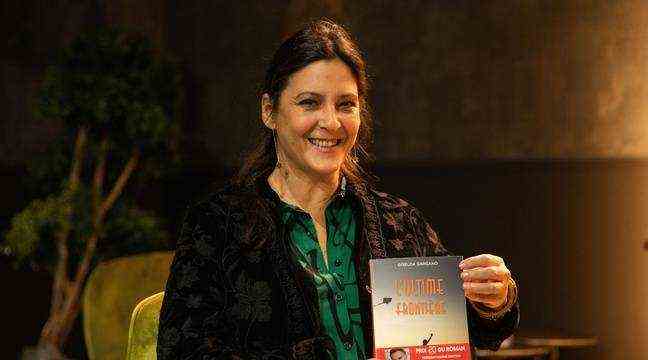The Ultimate Frontier ? “A story as poignant as it is fascinating”, according to the writer Maxime Chattam, president of the jury of the prize 20 minutes, whose words light up the cover banner of the beautiful novel that Giselda Gargano is releasing this Thursday in bookstores.
The Italian author immerses her reader in a world at war, in which the individual destinies, as touching as they are, count less than the fight which each one carries out to save lives. It doesn’t matter where and when: between Vietnam in the 1970s, Bosnia in the 1990s, the Democratic Republic of the Congo from the 2000s to today, nothing has changed, or so little.
“The situations recounted in the book are inspired by reality,” underlines Giselda Gargano, former journalist for a humanitarian association. But the characters are invented ”. A Vietnam veteran surgeon, his peacekeeper son, a Bosnian war survivor nurse, the director of an NGO in Paris, a few hotheads on the ground. Places where, when death randomly strikes opportunities, it rarely looks pretty.
“The ultimate frontier” is conjugated in the plural
“The final frontier is the one that humanitarian aid pushes back to help people at war,” explains the author. But it is also the one that countries close as soon as a threat looms on the horizon. We think of a health crisis or a migratory crisis, but the border of the title is not only geographical. “I thought of the one you build in your head or in your body. The final frontier is the one we cross when we go from life to death, ”specifies Giselda Gargano, who also evokes the boundaries between reason and madness. “Originally, the novel was to be called Borderline for reference to the psychological profile, she adds. Because, to do this job, you have to be borderline. “
In his sometimes fragmentary, fragmented story, like the after-effects of war wounds that are struggling to heal, we feel the deafening side of the weapons, the effects of stress and fatigue, to the point of dizziness. Giselda Gargano excels at putting images in the heads of her readers. Among her influences, she cites Apocalypse now (for Vietnam), of course. But also In the heart of darkness (Congo) or No man’s land (Bosnia). She struggles to put back titles on all the movies she can think of. We slip him The Red line by Terrence Malick or Underground by Emir Kusturica. His face lights up: “Yes, this very special way of portraying animals! “
No doubt because the author is not a native French speaker, her writing is not overused and her experience pushes her to avoid clichés. “In war, there are neither good guys nor bad guys,” recalls Giselda Gargano, whose novel does not spare children. Coming from Italy to study in France, at the age of 25, the author learned to write French before speaking it. But she already had strong ideas. “If I chose France, it is for its reputation as a land of asylum with values and know-how that I admired. The geopolitical realities made him disillusioned. “I needed to talk about all this, not to settle accounts, but to take stock. It is tinged with helplessness, as if the war condemned men and women to make the same mistakes again and if the next world could only be built on quicksand.

